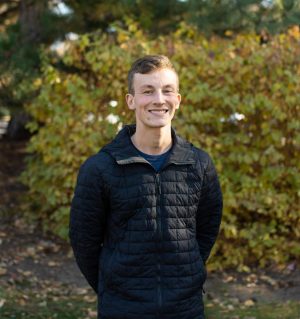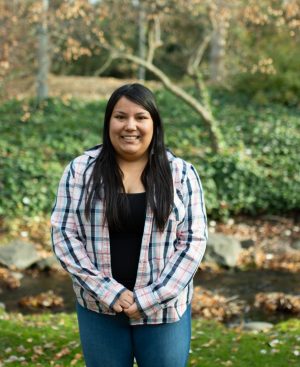A home for longer than four years: Whitties from Walla Walla
November 7, 2019
James Bogley ‘20 found out he got into Whitman when the director of admissions and his admissions counselor surprised him at his high school with his acceptance package.
This personal touch is familiar to a small subset of accepted students: those from the Walla Walla Valley. Some have Walla Walla roots thanks to family connections to Whitman, but more grew up in the area with no ties to the school.
Walla Wallans make up a small subset of the Whitman population. Many Walla Walla high schoolers don’t consider attending Whitman for a variety of reasons, including cost and proximity to home.

Growing up in Walla Walla and attending Whitman has made senior James Bogley notice that both communities are similar in their focus on common connection.
For Miguel Baza ‘20, it was the school’s perceived competitiveness.
“I was never really attracted to it in high school and middle school, this sort of prestigious, liberal arts school. There’s no way I’ll ever get into that school, so I never really paid much attention to it,” Baza said.
Lizbeth Llanes ‘21 noticed a similar sentiment in her high school.
“I think a lot of local students [think], ‘I’m not gonna get in,’” Llanes said. “At least in my case, I was like, I think it just looks too competitive.”
Many are apprehensive about going to school in the same small community in which they grew up. Christian Wallace-Bailey ‘22 applied to schools across the country, but ultimately decided Whitman was the right choice.
“It’s definitely turned out to be the right decision,” Wallace-Bailey said, “but making the decision to stay here for another four years can be a little rough.”
Baza, however, always knew he wanted to stay in Walla Walla so he could give back to his community.
“The community has been very welcoming and very supportive to my family, and so giving back to my community is something I really wanted to do, and so that’s why I’m here,” Baza said.
Whitman has provided him with those opportunities: his work-study position is as a tutor at the same elementary, middle and high schools that he went to.

Junior Lizbeth Llanes grew up in College Place and has found that her perspective of Whitman’s engagement with the community has changed since her arrival at Whit man
“So it’s like giving back to the teachers that served me, I’m helping serve them,” Baza said.
Most of this cohort of Walla Wallans remember Whitman students being present in their early education, whether it be through the college-readiness program AVID, one-on-one tutoring or coming into science class to do an experiment. Bogley, whose parents both attended Whitman, said it was cool to see Whitman students be part of his life growing up through assisting with sports teams and music lessons.
Still, he says Whitman’s efforts to branch out into the community are clearer to him now that he’s here.
“I don’t know how much I appreciated it when I was in school, but now that I look back at it, I’m really glad that Whitman students are having a hand, it gives off the perception that Whitman isn’t its own secluded community within Walla Walla,” Bogley said.
Llanes also had a moment of realization upon arriving at Whitman about the school’s outreach programs.
“I lived in Walla Walla and I was like, ‘oh Whitman doesn’t do anything for the community’…and now that I’m at Whitman, I’m like, ‘wow we do do a lot of things and reach out to the community,’” Llanes said. “So I think that there’s a disconnection that I’m still trying to figure out how to fix and be a more cohesive unit as a whole.”
Wallace-Bailey, who, along with Llanes, is technically from College Place, also felt limited involvement from Whitman in his community before he came here.
“I think Whitman is doing all the right moves, and I think the community just isn’t connecting. At least the community I come from is pretty separate,” Wallace-Bailey said. “And I don’t really know how to fix that. It’s an interesting dynamic.”
There are still varied perspectives on the penetrability of the “Whitman bubble.”
Students from Walla Walla without pre-existing Whitman connections felt more of a divide than those whose family members attended.
“Walla Walla really looks up to them, those students who are there, and they want them to come into the community and have that relationship,” said Baza. “But when I hang out with my friends, it’s always like, ‘oh, you’re a smart kid, go hang out with your Whitman friends.’ It feels like there is a boundary.”
Llanes echoed Baza’s feelings of the separation between Whitman and their home communities.
“I think it’s been very strange to be, like, I grew up being on one side, and now I’m on the other side,” Llanes said. “It feels like a town within the Walla Walla city.”
Students who are members of both communities have noticed that unless a Walla Walla community member is involved in an organization with Whitman connections, their interactions with the school tend to be few and far between. This can contribute to a feeling of separation in a town as tight-knit as Walla Walla, especially since most Whitman students are from out of town.
JoAnn Carmody ‘22 has picked up on the divide.
“Whitman definitely has that reputation in the community of being like, that’s where all the hippies are,” Carmody said. “Cause Walla Walla’s pretty conservative and everyone sort of knows each other, so Whitman’s kind of like where the strange kids are.”
Some of the impressions Walla Walla-born students have gleaned include murmurings about Whitman parties, difficult academics and the occasional meme about students’ tendency to not look before crossing the street. The privileged identity of many Whitman students isn’t lost either.
“The talk that Whitman had when I was in high school was…they’re a bunch of rich students, and it’s very full of white people,” Baza said.
Llanes has noticed a similar feeling towards Walla Walla University. Walla Walla Community College is more seamlessly integrated into the community, she says, because of the opportunities they provide, like English classes and GED programs.
“I think it might just be [being] private and the sticker behind it,” Llanes said, that separates WWU and Whitman from the broader Walla Walla community.
Bogley noted that growing up in Walla Walla and going to Whitman has made him realize they’re similar entities in many ways — both are close communities full of people who want to connect and get to know each other.
“Everyone [at Whitman] is engaged in each other’s interests, what everyone else is learning,” Bogley said, “and I feel like it’s the same for Walla Walla. We’re a friendly town where you’ll just have conversations with your neighbor.”
The perspectives on and interactions with Whitman that Walla Wallans have had are as varied as the town itself, which Wallace-Bailey noted is sometimes lost on Whitman students.
“Walla Walla’s a lot more diverse than people give it credit for…a lot of other types of people other than the Whitman community,” Wallace-Bailey said, “and I think that’s important.”
For Whitman students whose residence in Walla Walla starts when they get to school, it can be easy to forget that the community extends far beyond just who they see every day — and that some of their peers have called Walla Walla home for much longer than four years.





